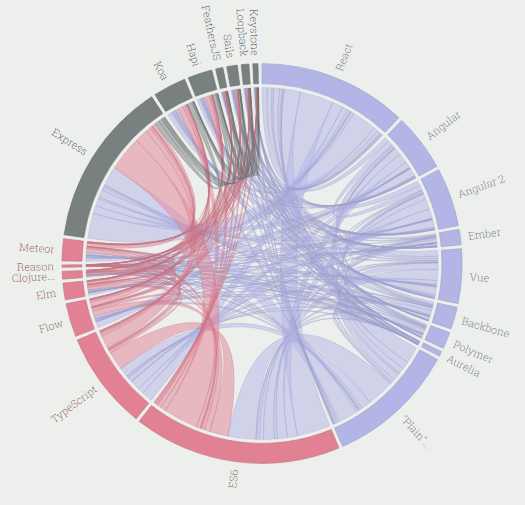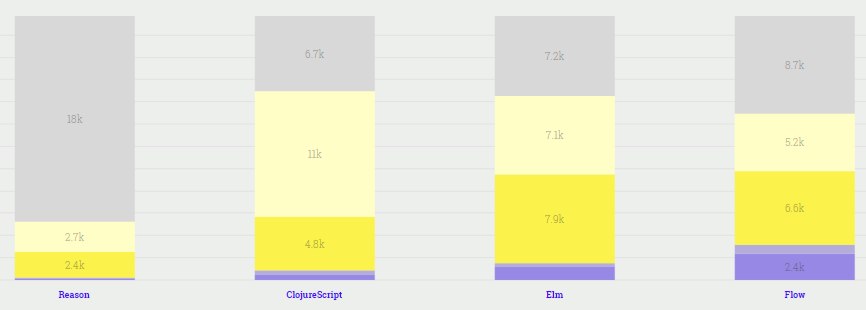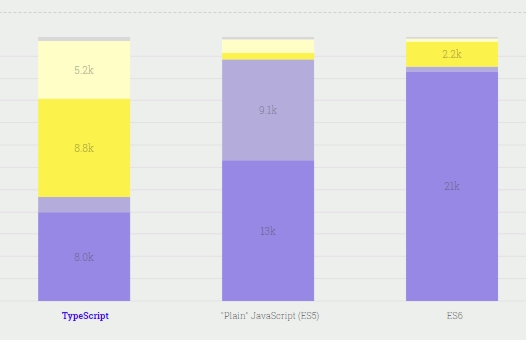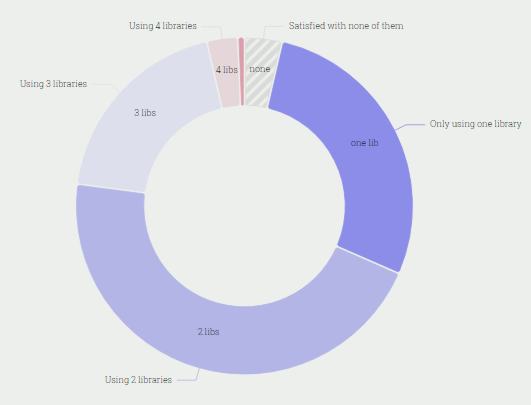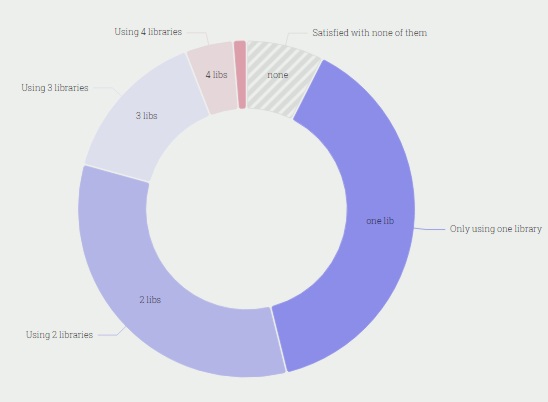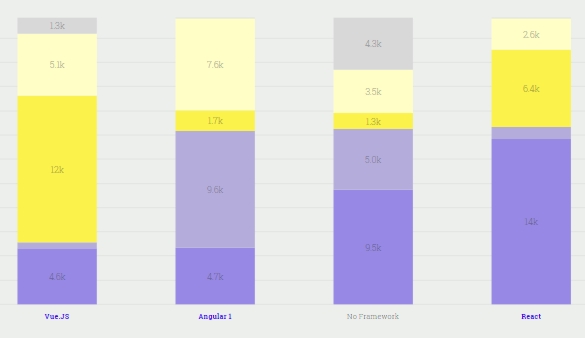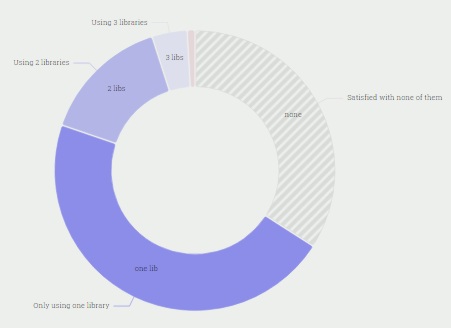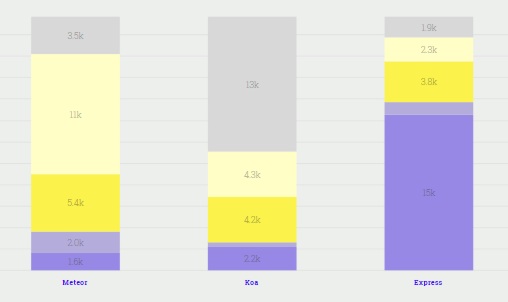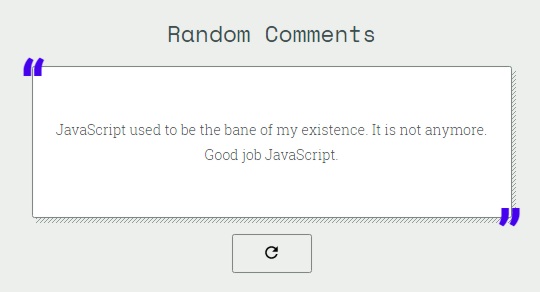| JavaScript Ecosystem Under Scrutiny |
| Written by Janet Swift | |||
| Wednesday, 20 December 2017 | |||
|
The one-line verdict from a survey into the State of JavaScript 2017 is that the JavaScript world is richer and messier than ever. A wealth of detail is available from the results, which are presented as interactive charts plus Random Comments, and here are some highlights. This is the second year in which JavaScript developers Raphaël Benitte, Sacha Greif and Michael Rambeau, who is also the creator of the Bestof.js platform, have conducted a survey to provide a comprehensive look at the JavaScript landscape. In 2016 they had 9307 responses to 89 questions; this year, responses came from more than 23,000 developers. The culmination of the research is Connections an interactive tool that lets you explore how parts of the JavaScript ecosytems interact, there's a tool that lets you explore questions like: How many React users also use Redux? You can choose up to3 categories at a time from the following:
Each of the categories has six or more examples and for each of these respondents answered questions which allowed them to be displayed on a 5-point scale:
Seven JavaScript flavors were selected for inclusion in the 2017 survey:
The obvious omission from this list is CoffeeScript which was included in the 2016 survey and was deemed "on its way out". The replacement flavor, Reason, was unheard of by 18k respondents and the majority of those who had heard of it were not interested in it - 2.7k compared to 2.4k who would like to learn it. Only 131 developers had used it, all of whom would use it again. ClojureScript, Elm and Flow had increasing numbers of users who had used it and would use it again but at the same time had increasing numbers of developers who had never heard of it. At the used and appreciated end of the scale, which is shown in the chart below, came ES6 with 23.2k either wanting to use it again or to learn it. While 22.1K had used its predecessor, ES5 aka "Plain" Java ES5 9.1k (the middle column below) no longer wanted to use it. For TypeScript, on the other hand 9.4k devs had used it and the vast majority of them would use it again.
The survey also asked how many JavaScripts devs used and would use again, with the majority answer being 2 libraries. The number who claimed not to be satisfied with any of them, 819 respondents, was almost balanced by those who said 4 or 5, 767 in total.
For Overall Happiness, measured on a 5 point scale with 1 as Unhappy and 5 as Happy, Flavors was rated as 4. With respect to Front-End Frameworks, multiple libraries had been used by over half of respondents and overall happiness was rated 3.8 out of 5.
React emerged as the most recognized (only 82 respondents had not heard of it) and the most used (by 15k only 1020 of whom didn't want to continue using it. Angular's popularity appears to be on the wane. Two-thirds of the 15k who had used it didn't want to use it again. On the other hand 12k of responders were keen to try VueJS. Notice the No Framework column in the chart which, for 13k respondents, is their continuing choice.
Four other Front-End frameworks were included: Backbone, Polymer, Ember each had over a thousand continuing users, but Aurelia, which the majority of respondents had not heard of, had only 348. Turning to Back-End framworks, of which 8 were included in the survey, using only one was the norm, with None being a fairly close second and overall happiness was rated 3.5 out of 5.
Express is clearly the most popular contender. Koa was the only other to have more than 2k repsondents who had used it and would do so again, but 13k had never heard of it. Meteor was the second most known, but the majoity of those who had used it would not do so again.
Five other Back-End frameworks - Hapi, Sails, Loopback, FeatherJS and Keystone - were increasingly unknown or attracted no interest. If you are interested in the JavaScript eco-system this survey is well worth a visit. You'll find similar treatment of State Management, Testing, CSS and Build Tools. There's also a section dedicated to Mobile and Desktop Frameworks. It's also worth scrolling through the "Random Comments" to see what respondents said spontaneously.
I agree both with this and with one which says: "JS seems to be settling down. I'm more productive and feel less behind all the time." But I also have some sympathy with one from 2016: "I think that the JavaScript community is being torn apart by the people that once raised it to its maximum glory." While the team admits that they've only just scratched the surface - and also promise extra results once they've done more work on devs opinions - they do come to a verdict, saying: Just like last year our overall conclusion remains the same: JavaScript keeps improving and evolving at an ever-increasing pace. This is a bit scary, but it's also exciting: after all, you know that learning JavaScript is never going to get boring!
More InformationRelated ArticlesJavaScript The Language With Two Names JavaScript Async - Promises, The Revealing Constructor Pattern Advanced JavaScript Book Choice
To be informed about new articles on I Programmer, sign up for our weekly newsletter, subscribe to the RSS feed and follow us on Twitter, Facebook or Linkedin.
Comments
or email your comment to: comments@i-programmer.info |
|||
| Last Updated ( Tuesday, 11 September 2018 ) |


